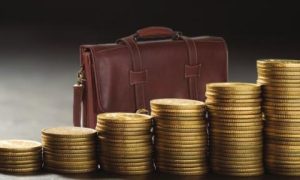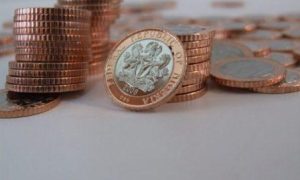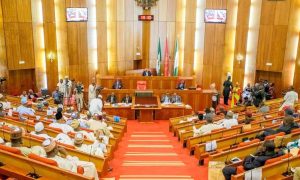FDI insiders forecast a ‘wild ride’, tariff-jumping and stronger intra-Asia integration
The international investment community has greeted Donald Trump’s election as a mixed bag for FDI, with forecasts ranging from a “wild 2025” and more tariff-jumping to deregulation and a hit to green investments.
The Republican party sailed to victory in this week’s US election, taking the White House and Senate, and closing in on the House of Representatives with votes still being counted. Mr Trump’s campaign promises include hiking tariffs against China to 60% — and up to 20% for all other imports — cutting the corporate tax rate from 21% to 15%, and boosting US job opportunities.
While it’s too “early to tell” if these pledges will materialise into policies “there is an expectation of more tax cuts, business deregulation, and new tariff policies”, says Patrick Bench, president of economic development consultancy Benchmark Strategies in Boston.
Investors’ prioritisation of regulatory and policy stability sits awkwardly with Mr Trump’s unpredictability during his first presidential term, when he pulled out of the Paris Climate Accord, oversaw high turnover among senior officials and disempowered the Environmental Protection Agency.
Didi Caldwell, CEO of Global Location Strategies in South Carolina, expects 2025 to be “a wild ride with potential outcomes that are difficult to predict”. In the same vein, transatlantic trade bodies have urged Mr Trump to focus on constructive policy-making in his bid to strengthen the national economy.
“As the president-elect focuses on maintaining the US’s economic competitiveness, I encourage him and congressional leaders to pursue policies that will drive more investment into the US,” says Jonathan Samford, executive vice president of the Global Business Alliance, which represents foreign firms operating in the US.
Despite Mr Trump’s reputation for unpredictability, one Indian government official told fDi that New Delhi believes the president-elect will be “wiser from the experience of his previous tenure” and has “perhaps learned that if you don’t co-operate it will be lose-lose for everyone”. The official added that within Indian government circles, it was hoped that the Republican candidate would win.
Taxes and tariff-jumping
In addition to cutting the corporate tax rate, Mr Trump has pledged to reinstate 100% deductions for tangible investments and research, which have dropped to 60% in line with the Jobs and Tax Cuts Act’s expiration timetable. Ms Caldwell expects lower corporate income taxes will cause some investment to be redirected to the US. “Most manufacturers [don’t] make decisions on tax policy alone, but effective tax rates have an outsized impact on location decisions for highly profitable tech companies and manufacturers like pharmaceuticals,” she says.
If implemented, Mr Trump’s tariff plans are expected to hit the global economy in the short term, while their impact should wane over time (see chart). However Ms Caldwell is among a number of US-based experts who expects the country to benefit from a movement of production to the country in the mid-term. “If Trump follows through on his promise … there will be an increased interest in US manufacturing sites by foreign companies,” notes Jim Renzas, senior director at BCI Global.
Karl Sauvant, Columbia Law School senior fellow, also expects tariff hikes to increase tariff-jumping FDI, “not only in the US, but also in other countries that raise tariffs in response”, says the former director of Unctad’s investment division. His expectation of retaliatory tariffs echoes comments by former European Commission president, José Manuel Barroso, who told fDi in June he sees the “serious possibility” of a trade war between the US and Europe now Mr Trump has returned to the Oval Office.
US tariffs’ spillover effects could affect FDI in other ways, too. Abishur Prakash, CEO of advisory The Geopolitical Business, warns that companies may rethink their new projects in Europe or Canada if tariffs make their access to the US market more difficult. “More companies [could] shift foreign investment straight to the US instead of connected economies,” he adds.
Green investments
Beyond taxes and tariffs, some expect more policies to incentivise investment into the US by companies looking to sell domestically. “One way or another, a big focus of the new administration will be on attracting [and incentivising] inward investment from both domestic and international companies” that want to sell into the market, says Duncan Edwards, CEO of trade association BritishAmerican Business.
However, one area plagued by policy uncertainty is green investments. Mr Trump has criticised the renewable energy transition, and lobbied oil and gas majors during the election campaign.
Ann Huynh, CEO of 3Si Inc, which advises on US-Asean trade and investment, tells fDi: “Because we operate in sustainable investment, the election result for our company definitely has a negative impact.” The firm has been active in the US electric vehicle (EV) industry, helping a Vietnamese EV firm source supplies from Asean to equip its US stores. “The [incoming administration] is not that in favour of green growth … we do still retain hope, but it’s going to be a long [haul] flight for us,” she adds.
While campaigning, Mr Trump promised to weaken the Inflation Reduction Act (IRA) which has set aside $369bn for green subsidies. But despite this rhetoric, advisors agree that broad support for renewable power among Republicans — largely because their states have benefited most from the IRA — would make it difficult to get amendments through Congress even if the party controls both houses.
Ms Caldwell is among those who don’t “expect Trump to throw out the baby with the bath water” by rolling back the IRA. But she warns he may alter the ‘green’ requirements to allow industries like steel, paper, and aluminium to take advantage of the incentives if they implement pollution reduction measures.
Asia spillovers
The Trump presidency is expected to have global ramifications, especially for Asia given that it is anchored by the US’s geoeconomic rival, China. With the Republican party’s gains across the country, John Evans, managing director at Tractus Asia, expects a continuing “proliferation of state legislation” restricting land ownership by Chinese individuals and companies. “That is FDI that won’t happen,” he says.
US-China tensions are expected to rise under the incoming administration, which could pressure other governments in the region to prioritise ties with one superpower over the other. Adrian Tan, a research director at Curtin University in Singapore, says Asian countries’ strong supply chain networks with China could “pick up even more” if blanket tariffs by the US makes China a more viable export market. Mr Trump’s promises “might surprisingly be a boon for the further establishment of trade relations and supply chains within Asia and with China”, he adds.
For all the speculation over what the next Trump presidency means for FDI, we may be waiting some time to see the results. “Timelines for [FDI] decisions can range from six months to over two years,” says Mr Bench. “[So] the long-term effects of the change in administration may not be immediately visible.”
fDi



























